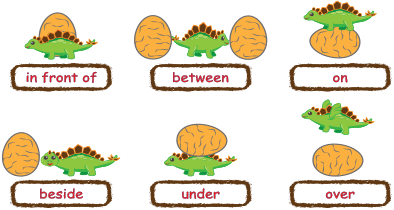Introduction
Prepositions are tiny words that play important parts in creating coherent sentences. Relationships between things, locations, and time are defined with the use of words like in, on, under, and between. However, it might be difficult to learn and master them, particularly for non-native speakers and children. Using entertaining games and relatable examples might be a great way to keep the process interesting.
1. Understanding Prepositions
Prepositions connect pronouns, nouns, and phrases to other sentence components. They give background information by responding to queries about “where,” “when,” and “how.”
Examples:
- On the table is the book.
- She was there prior to the conference.
Types of Prepositions
- Prepositions of Place: in, on, beneath, and over
- Prepositions of Time: before, after, during, and at
- Prepositions of Direction/Movement: to, into, onto, through
2. Why Use Games for Learning Prepositions?

Games are captivating, participatory, and aid in memory retention. They also offer a secure environment where one can practice and make errors without worrying about criticism.
3. Fun Games to Teach Prepositions
Game 1: Preposition Treasure Hunt
Objective: The goal is to teach place-specific prepositions.
How to Play:
- Throughout a room, conceal little items.
- Make hints such as “The toy is on the shelf” or “Find the pen under the chair.”
- To locate the treasure, participants must follow the hints.
Game 2: Simon Says with Prepositions
Objective: Strengthen location and direction prepositions.
How to Play:
Use commands like:
- “Simon says, put your hand on your head.”
- “Simon says, place your foot under the table.”
- By combining several prepositions, you can promote creativity: “Simon says, jump into the circle and sit beside your friend.”
Game 3: Preposition Puzzle Match
Objective: Increase preposition usage recognition.
How to Play:
- Make cards using prepositions and visuals that go with them, like a cat on a mat.
- Participants should be asked to match the word cards to the matching images.
Game 4: Sentence Building Race
Objective: Work on using prepositions to build sentences.
How to Play:
- Assign players to teams.
- Give a list of random nouns and prepositions.
- Teams compete to use the provided prepositions to create coherent sentences.
Game 5: Act it Out!
Objective: The goal is to use role-playing to promote active learning.
How to Play:
- On pieces of paper, write prepositions like “in front of,” “behind,” and “between.”
- While some players predict the preposition, others draw a slip and act it out.
4. Examples to Reinforce Prepositions
Examples are critical for clarity and understanding.
Prepositions of Place
- The keys are on the table.
- The cat is under the bed.
Prepositions of Time
- She will arrive at 5 PM.
- They met during the festival.
Prepositions of Movement
- He walked into the room.
- They ran through the park.
5. Interactive Classroom Activities
Activity 1: Preposition Art
How to Do It:
- Give students art supplies so they can create settings that demonstrate prepositions.
- Example: A drawing showing a ball under a chair.
Activity 2: Story Completion
How to Do It:
- Students should be given unfinished phrases such as “The bird flew _ the tree.”
- The bird flew _______ the tree.
- She placed the vase _______ the table.
- The vase was set on the table by her.
- Urge them to use the proper prepositions to fill in the blanks.
6. Using Technology to Teach Prepositions
Preposition Apps and Tools
- Preposition activities are frequently included in language learning applications such as Duolingo and Memrise.
- Learning can become more interesting and accessible with the use of online games and tests.
Virtual Activities
- Organize online scavenger hunts where participants describe the locations of items using prepositions.
7. Challenges in Learning Prepositions
Common Confusions
- employing the clauses in and on (for example, He is in the automobile versus He is on the bus).
- moving in both directions.
Tips to Overcome Challenges
- Use examples from real life to practice.
- Review and reinforce previously learnt prepositions on a regular basis.
8. Benefits of Learning Through Games
- Enhanced Retention: Learning experiences made using games are unforgettable.
- Improved Confidence: Students are inspired to try new languages.
- Collaborative Learning: Group activities promote communication and cooperation.
9. Final Tips for Teachers and Parents
- Be Patient: Using prepositions might be challenging. Promote regular practice.
- Use Everyday Contexts: Include prepositions in regular discussions.
- Reward Progress: To keep students engaged, acknowledge and celebrate accomplishments.
Conclusion
It doesn’t have to be boring to learn prepositions. Anyone may successfully learn prepositions by combining entertaining games, relatable examples, and interactive exercises. This method not only makes learning fun, but it also lays a solid basis for general language competency.
Also Read:
http://bright-minds.in/

